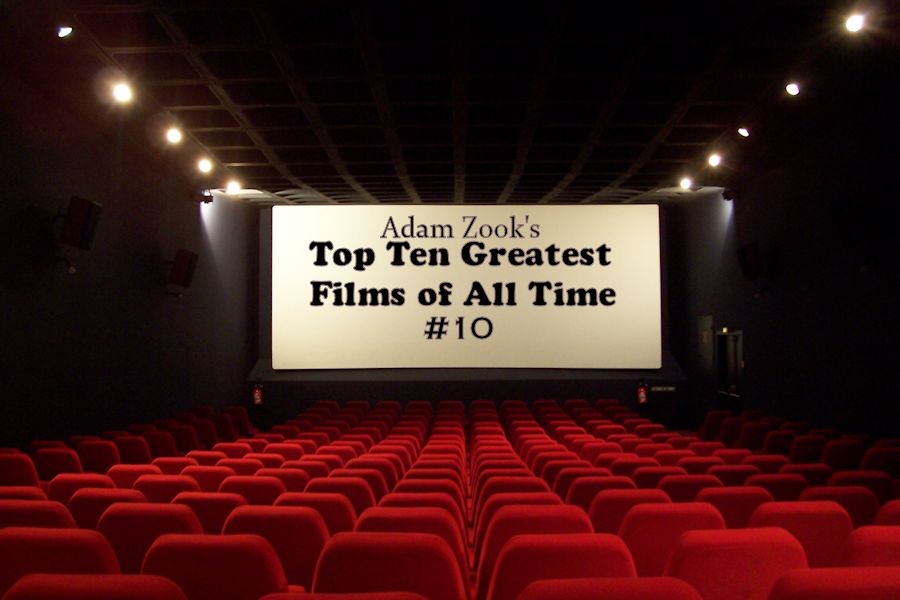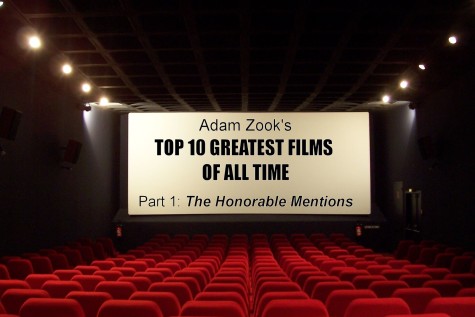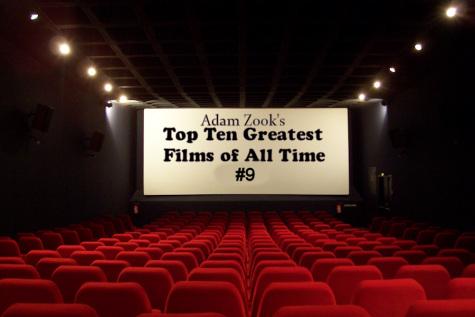Top Ten Greatest Films of All Time: #10
I would be foolish to not include a film by the master himself, Alfred Hitchcock on this list. The immortal director of movies like Vertigo, North By Northwest and The Birds revolutionized film making and inspired a new generation of eager directors trying to emulate his mastery of storytelling.
Similar to the director himself, there was never a film before or since Psycho that defined a genre and altered the course of film forever.
Hitchcock’s vision and willingness to take risks drove this movie into my Top Ten and past his other impressive works. Although Psycho is no longer as scary as it was 55 years ago it still cements itself in your memory after watching it.
Psycho started the practice of the twist ending and telling a story in two acts. Hitchcock’s masterpiece is very much two separate movies, one about a secretary on the run with $40,000 dollars and the other about a murder struggling to accept who they have become.
Psycho also started the genre of psychological horror, as it tackled philosophical themes like nature vs. nurture and what drives some people to kill others. Hitchcock opens the movie with a sex scene and ends in a prison cell. Talk about taking a 180 and leaving the audience in utter shock and awe.
Janet Leigh’s performance garnered a nomination for Best Supporting Actress and Anthony Perkins’ portrayal of Norman Bates is one of the most iconic in film history. However, a poor supporting cast around the two really hurt the film. Over-acting and some rather silly dialogue in some scenes kept this horror classic from climbing higher on my list.
Hitchcock never received an Academy Award (such a pity) but should have for this masterpiece of cinematography. The infamous shower scene got everyone talking and opened up doors for directors to push the boundaries of what was acceptable in film. Hitchcock pushed the envelope and came up a legend on the other side.
There will be a two week hiatus for the list due to our winter break here at Tyrone High, so that gives you avid readers a chance to watch some of the films I’ve mentioned so far.



bob • Jan 8, 2016 at 9:09 am
wow
David Rutter • Dec 21, 2015 at 10:46 am
I am glad that Hitchcock’s “little film” was on the list. Yes, this is how he referred to the film since it was shot by his television crew and not his feature film crew. I recommend Joseph Rebello’s book entitled The Making of Psycho.
Personally, I do not think this is Hitchcock’s masterpiece. I have always believed that Rear Window edged this film in that category. However, what makes Psycho so unique (and yes it was based on real events–read Rebello’s book and you’ll see how) is what it makes the audience do, or what Hitchcock himself is forcing the audience to do. As a viewer, you are attaching yourself to Marion Crane and are involved in her story. But midway through, you are FORCED to now attach yourself to Norman. Never before had a lead actress, especially Leigh who was at the top of the Hollywood pantheon, disposed of in such fashion. It leaves a very unsettling feeling for the audience. You have to trust a madman and in the process have sympathy for him, which I find myself having more and more as I watch the film. In my opinion, Norman NEVER had a chance to live his own life. His life was a by-product of his smothering mother whose controlling, diabolical ways will continue to live through him forever–he can never escape in in life or death.
Hitchcock’s choice to use black and white was genius. Why? Black and white has a simple, direct contrast. This film is anything but simple. It’s a deep psychological film with many layers for the primary characters and even the setting itself.
Psycho was the game-changer in the horror genre. It made you question “the boy next door” and showcased horror in a real-life scenario. Hitchcock plays on the viewer to use the imagination of the mind to capture the horrors he does not show on the screen. Example? Count how many times you see the knife hitting Marion in the shower. It’s what you don’t see and what the mind can create that makes the film so terrifying. By the way, it’s the film that will forever change the way you look at a shower curtain.